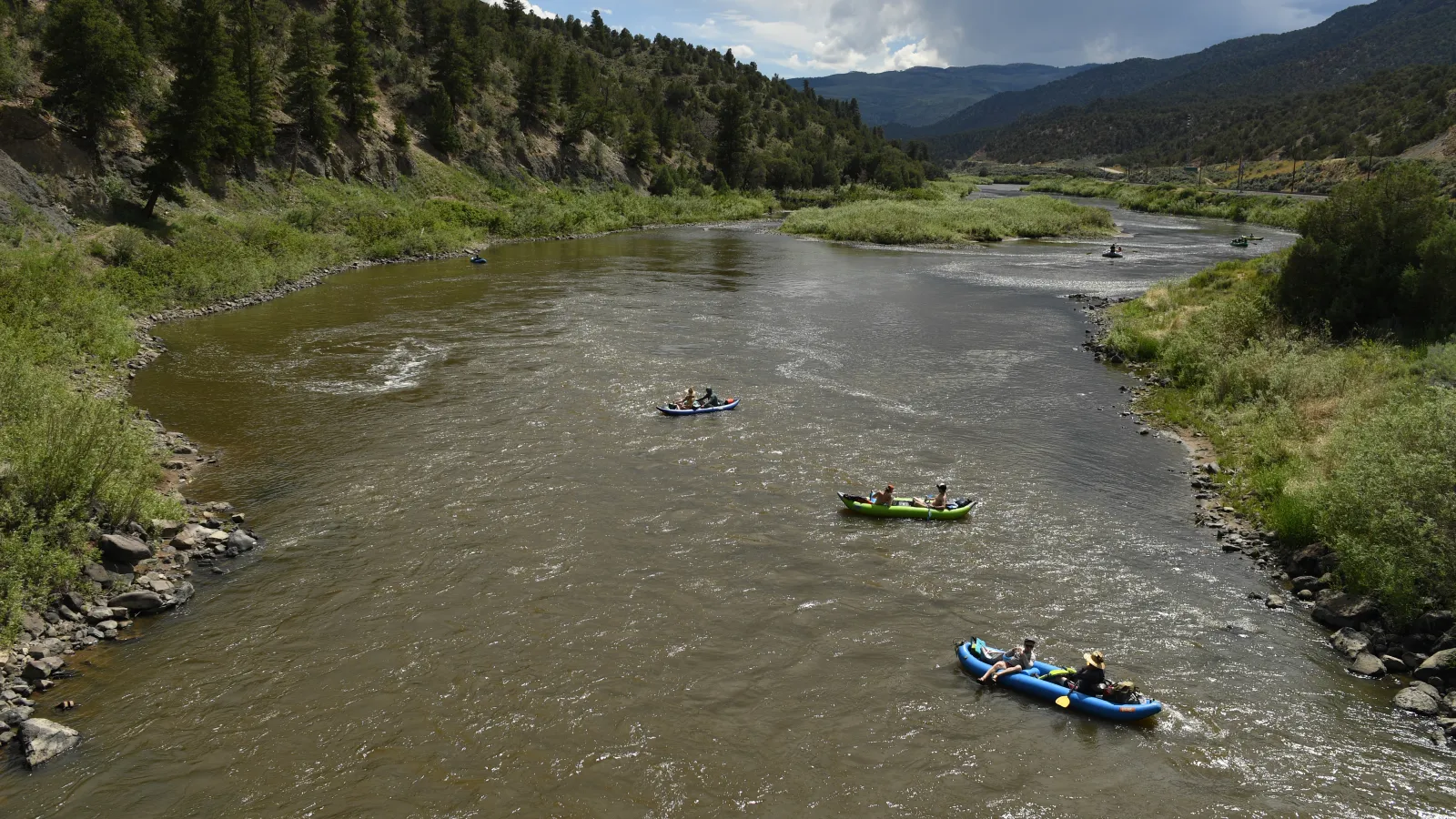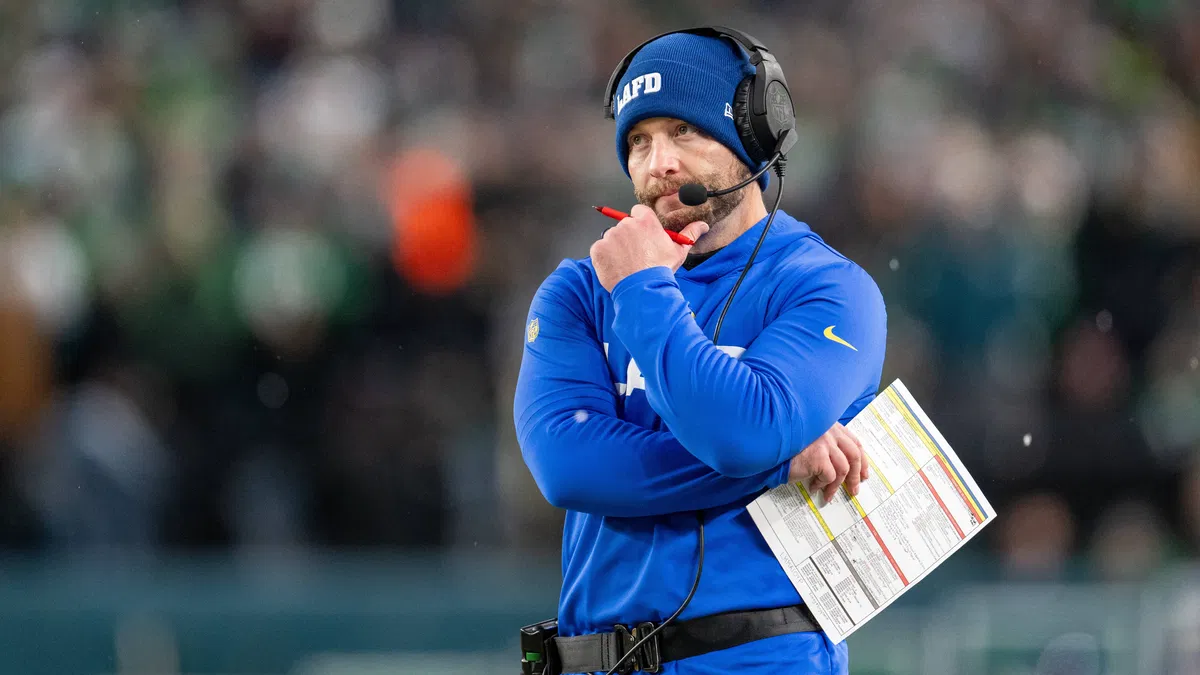Trump rollback of rule for public lands — including 13,000 square miles in Colorado — would reduce conservation role
By Elise Schmelzer
Copyright denverpost

Federal land managers are considering repealing a set of regulations that prioritized conservation on millions of acres of Colorado public land — the most recent move by the Trump administration in a torrent of changes to federal lands policy.
The U.S. Department of the Interior plans to rescind the Biden-era Public Lands Rule, which directs the Bureau of Land Management to consider the conservation of public lands to be equally important as commercial uses like oil and gas extraction, mining, grazing and timber harvesting. When they announced the rollback, administration officials said the rule placed outsized priority on conservation and threatened to curtail grazing, energy development and other traditional land uses.
“The most effective caretakers of our federal lands are those whose livelihoods rely on its well-being,” Interior Secretary Doug Burgum said the proposal was unveiled. “Overturning this rule protects our American way of life and gives our communities a voice in the land that they depend on.”
Colorado conservation advocates said the rollback of the rule is shortsighted. The 2024 rule gives the BLM the tools to make sure the 8.3 million acres of Colorado land it manages — or nearly 13,000 square miles — remain healthy and productive for future generations, they said.
The rule provided balance so that the agency could “really embrace the most significant growing part of Western economies — the recreation economy,” said Michael Carroll, BLM campaign director for The Wilderness Society. “By not having balanced management on those landscapes, the pressure climate change is going to put on those landscapes is going to ultimately restrict the use of those lands, no matter what that use is.”
The proposed rollback is the latest in a series of moves by the Trump administration to open more public land to development and relax regulations around commercial uses on them.
Months after a proposal to sell some of the West’s public lands failed due to an incredible onslaught of public opposition, federal lawmakers and the Trump administration are trying other methods to weaken protections for public lands, say conservation and recreation advocates.
“In the West, public lands power our outdoor economies, provide critical water and grazing resources for agriculture, and give our residents unmatched opportunities to recreate and enjoy the peace and solitude that comes along with time spent in nature,” said Anna Peterson, the executive director of The Mountain Pact, an organization that works with over 100 communities across the western U.S. on environmental and economic sustainability.
“But threats from the Trump administration and radical anti-public lands politicians are putting our shared outdoor heritage in danger of being exploited for short-term gain.”
Public lands policy change
The BLM implemented what’s known as the Public Lands Rule — formally called the Conservation and Landscape Health Rule — in April 2024. Local offices had just received guidance on how to use the new rule when President Donald Trump took office in January.
Implementation has ground to a halt.
“We never got the opportunity to see the Public Lands Rule fully implemented,” Carroll said.
Along with conservation, the rule designated several other uses of BLM land as equally important as commercial uses — access to nature, plus protection of cultural resources and wildlife habitat, along with using the land to mitigate the impacts of climate change. The rule gave the agency several new tools to implement that goal:
It allowed communities or other entities to lease BLM land for restoration.
It created a program in which companies using BLM land can lease land for mitigation efforts to offset negative environmental impacts from energy development, mining, grazing or timber harvesting.
It streamlined the process for designating areas of critical environmental concern and expanded the definition for what qualified for the more stringent protections available for those areas.
In Colorado, state leaders and conservation groups had hoped to use the new rules governing areas of critical environmental concern to better protect wildlife corridors, big game populations and wilderness areas in the southwest corner of the state, said Juli Slivka, the policy director for the Carbondale-based Wilderness Workshop. The BLM’s Uncompahgre Field Office, based in Montrose, is considering those proposals.
“Under the (public lands) rule, there is a lot more space for them to do that,” Slivka said, lamenting the proposed rollback.
Communities along the Colorado River could’ve used the new conservation leases to restore riparian environments, Carroll said.
“Giving communities and local governments the ability to take out conservation and restoration leases would’ve been instrumental in a lot of the restoration moving forward,” he said.
The Public Lands Rule enjoyed broad support among Colorado’s Democratic congressional delegation. More than 150,000 people commented in 2023 on the rule after it was proposed, and an analysis of 10,000 of those comments by the Center for Western Priorities found that 92% of comments supported it.
“In moving to rescind this rule, the Trump administration is undermining efforts to protect our lands for the next generation,” U.S. Rep. Joe Neguse, whose district includes the state’s central and northern mountains, said in a statement. “Already this year, we’ve seen their radical agenda call for the auctioning off of millions of acres of our public lands, including here in Colorado, and continued attacks on the public servants in our land management agencies.
“We’ll continue to push back against these efforts — which are deeply unpopular with the public — and are building a bipartisan coalition to make clear that public lands must stay in public hands.”
U.S. Rep. Jeff Hurd, a Republican whose western and southern Colorado district contains the majority of the BLM land in Colorado, did not respond to a request for comment on the rollback.
Rep. Jeff Crank, the Republican representing the Colorado Springs-based 5th Congressional District, applauded the BLM’s move and said the Biden administration “stepped away from its statutory core mission — to manage lands for multiple use.”
“I applaud BLM’s decision to rescind the rule, it will make sure that our public lands are accessible and fruitful for the benefit of all Americans,” Crank said in a statement. “I look forward to continuing working with the administration and House Republicans on further ways we can promote productive management of Western lands.”
Public comment on the administration’s proposed rule rescission is open until Nov. 10.
Other efforts underway
The proposed change to the Public Lands Rule is one of several major ongoing overhauls of federal public lands policy.
Taken together, the changes threaten to overrule public input on how federal lands should be managed and amount to “one of the biggest assaults on balanced management in a generation,” Carroll said.
“It all amounts to putting the thumb on the scale for industry, over and over again,” he said.
Republican lawmakers in several Western states — Alaska, Montana and North Dakota — are looking to use a legal loophole to overturn management plans for BLM land in their states that they believe are too restrictive on mining and energy development. The first-of-its-kind use of the Congressional Review Act to challenge BLM management plans could set a precedent that lawmakers have the final say on those plans, which are drafted over years and require broad community and industry input.
There are no known efforts to undo management plans in Colorado through the Congressional Review Act, Carroll said. But if the other states’ lawmakers are successful, he said, they could create a roadmap for doing so in the future.
The U.S. Department of Agriculture, which oversees the Forest Service, is pursuing the rescission of the 2001 Roadless Area Conservation Rule. The rule bans the construction of roads, and the commercial uses those roads enable, in 45 million acres of Forest Service land.
Colorado’s 4.2 million acres of roadless areas will not be impacted if the rule is rescinded, however, because the Forest Service has a state-specific regulation for the Centennial State.
Stay up-to-date with Colorado Politics by signing up for our weekly newsletter, The Spot.



